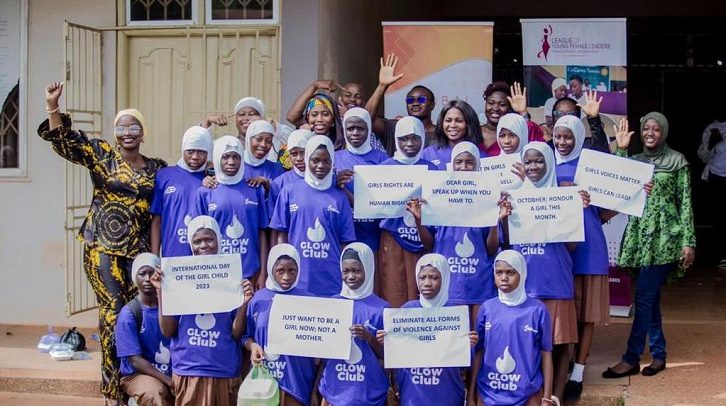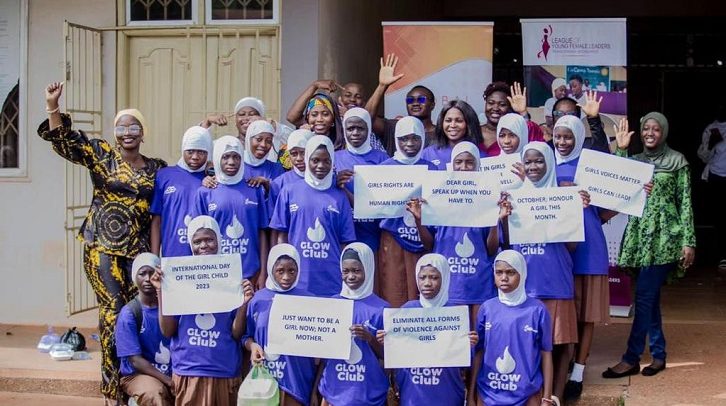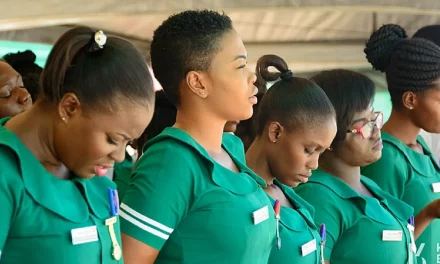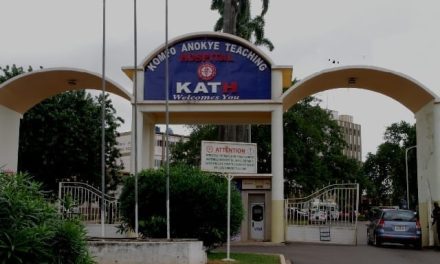
International Day of The Girl Child Celebrated In Tamale2 min read


The League of Young Female Leaders with pupils at the International Day of the Girl Child celebration in Tamale
The League of Young Female Leaders, has marked this year’s International Day of the Girl Child celebration on the theme; “Invest in Girls Rights; Our Leadership and Well-being”.
The League of Young Female Leaders brought together 15 Junior High Schools (JHS) made up of over 300 pupils across Northern region for the International Day of the Girl Child celebration.
According to the League of Young Female Leaders, the International Day of Girls is an opportunity to truly celebrate and honor all girls around the world as many women and girls are faced with the harsh realities of gender inequity on a daily basis.
The Executive Lead of the League of Young Female Leaders, Baba Dua Hikmat, indicated that girls continue to experience Gender-Based violence (GBV) adding that 1 in 3 women will experience GBV in their lifetime.
“Women and girls do not have the same rights as men and boys in terms of economic, or financial, issues. It is still common for women to be expected to stay at home and not have a career in many places, or girls are not allowed to stay in school long enough to work a job that pays more money or because they have to stay home to do chores. These and many other issues make fighting for economic justice and rights very important. Women are 25% more likely than men to experience extreme poverty”.
She was of the view that women are not traditionally the leaders of climate justice movements, but women and girls are usually the people most impacted by the harmful effects of climate change and the pollution that contributes to it and that globally 39% of women work in agriculture, forestry or fisheries, but only 14% of people who own the land where this work is done are women.
She said not only are women and girls less likely to be able to access technology like the internet, they are also less likely to work in the STEM fields (less than 15% of STEM degrees are earned by young women in most countries).
“Technology could also help us find solutions to issues that women and girls experience. Women are 10% less likely than men to be able to access the internet”.
Madam Hikmat disclosed that the statistics therefore are still not in favor of girls and women and called on government to prioritize girls and women representation as well as their needs by passing the affirmative action bill, to scrapping the taxes on sanitary pads.
Dr. Rahama Issah Executive Lead, of Active Youth Global, spoke on the power of girls to lead while Blessilla Nana-afore Kandoh, Health Lead, of Norsaac, talked about girls’ health and well-being with Fayuda Yakubu, Regional Manager, of Lively Minds taking the girls through Girls Rights and Responsibilities.


















